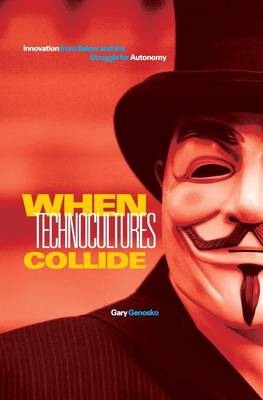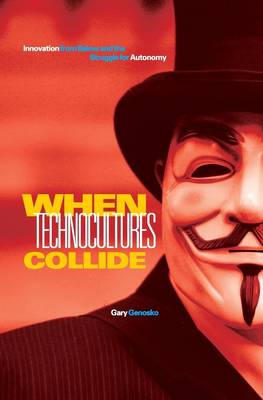
- Afhalen na 1 uur in een winkel met voorraad
- Gratis thuislevering in België vanaf € 30
- Ruim aanbod met 7 miljoen producten
- Afhalen na 1 uur in een winkel met voorraad
- Gratis thuislevering in België vanaf € 30
- Ruim aanbod met 7 miljoen producten
Omschrijving
Examines computer hackers, phone phreaks, urban explorers, calculator and computer collectors, "CrackBerry" users, whistle-blowers, Yippies, zinsters, roulette cheats, and chess geeks. The dangers and joys of struggles for autonomy are underlined in studies of RIM's BlackBerry and Julian Assange's WikiLeaks website.
When Technocultures Collide provides rich and diverse studies of collision courses between technologically inspired subcultures and the corporate and governmental entities they seek to undermine. Gary Genosko analyzes these practices for their remarkable diversity and their innovation and leaps of imagination. He assesses the results of a number of operations, including the Canadian stories of Mafiaboy, Jeff Chapman of Infiltration, and BlackBerry users.
The author provides critical accounts of highly specialized attributes, such as the prospects of deterritorialized computer mice and big toe computing, the role of electrical grid hacks in urban technopolitics, and whether info-addiction and depression contribute to tactical resistance. Beyond resistance, however, the goal of this work is to find examples of technocultural autonomy in the minor and marginal cultural productions of small cultures, ethico-poetic diversions, and sustainable withdrawals with genuine therapeutic potential to surpass accumulation, debt, and competition. The dangers and joys of these struggles for autonomy are underlined in studies of RIM's BlackBerry and Julian Assange's WikiLeaks website.
Specificaties
Betrokkenen
- Auteur(s):
- Uitgeverij:
Inhoud
- Aantal bladzijden:
- 222
- Taal:
- Engels
- Reeks:
- Reeksnummer:
- nr. 12
Eigenschappen
- Productcode (EAN):
- 9781554588978
- Verschijningsdatum:
- 25/10/2013
- Uitvoering:
- Paperback
- Formaat:
- Trade paperback (VS)
- Afmetingen:
- 135 mm x 201 mm
- Gewicht:
- 226 g

Alleen bij Standaard Boekhandel
Beoordelingen
We publiceren alleen reviews die voldoen aan de voorwaarden voor reviews. Bekijk onze voorwaarden voor reviews.







